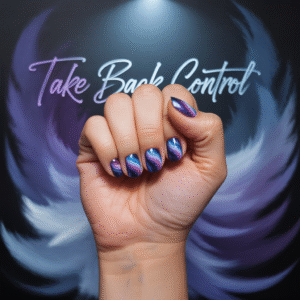Now Reading: Fake Apologies: When Narcissists Say “Sorry” Without Meaning It (And How to Stop Falling for It)
- 01
Fake Apologies: When Narcissists Say “Sorry” Without Meaning It (And How to Stop Falling for It)

Fake Apologies: When Narcissists Say “Sorry” Without Meaning It (And How to Stop Falling for It)
Ever Had Someone Apologize, But Somehow You End Up Feeling Worse? That’s a Fake Apology: Understanding Fake Apologies.
Recognizing Fake Apologies can be crucial in establishing healthy boundaries.
You finally call them out on their behavior.
You’re expecting accountability, remorse, maybe even change.
Instead, you get:
💥 “I’m sorry you feel that way.” (Translation: I’m not sorry for what I did, just sorry you’re upset.)
💥 “I’m sorry, BUT you made me do it.” (Translation: It’s actually your fault.)
💥 “Fine, I said sorry. Can we drop it now? This is just another example of a Fake Apology.” (Translation: I don’t actually care, I just want you to shut up.)
And when you push for a real apology?
💥 They act like YOU’RE the one dragging things out.
Maybe you’ve heard:
❌ “I said I’m sorry, what more do you want?”
❌ “I wouldn’t have done that if you hadn’t pushed me.”
❌ “Ugh, I guess I’m just a horrible person then.”
❌ “You’re too sensitive—I didn’t mean it like that.”
❌ “I already said sorry—why are you still mad?”
At first, you want to believe them.
Then, you realize nothing actually changed.
And before you know it, they’re back to the same behavior, and you’re back to waiting for another meaningless “sorry.”
That’s fake apologizing—a narcissistic manipulation tactic where they pretend to take responsibility while actually shifting blame, avoiding consequences, and gaslighting you into feeling like the problem.
If you’ve ever felt like someone in your life constantly gives apologies that feel hollow, insincere, or manipulative, you’ve been targeted by one of the most emotionally draining power plays in narcissism.
Let’s break down why they do it, how it affects you, and how to shut it down using the IMC Method™.

What Are Fake Apologies? (And Why Narcissists Use Them)
Fake apologies are not about making amends—they’re about maintaining control. They’re used to:
✅ Shut down the conversation without real accountability.
✅ Manipulate you into dropping the issue.
✅ Make you feel unreasonable for wanting a real apology.
It works because most people assume apologies mean change. The narcissist exploits this by offering fake remorse to escape consequences while continuing the same behavior.
🔥 Fake apologies aren’t about fixing things—they’re about avoiding responsibility. 🔥
How Fake Apologies Work (And Why They’re So Toxic)
Narcissists use deflection, guilt-tripping, and blame-shifting to turn apologies into just another manipulation tactic.
Fake Apologies in Action: The Narcissist’s Playbook
🔹 The Blame-Shifting Apology – “I’m sorry, BUT you made me do it.” (Translation: I take no responsibility.)
🔹 The Gaslighting Apology – “I’m sorry you feel that way.” (Translation: Your emotions are the problem, not my actions.)
🔹 The Minimizing Apology – “It wasn’t that bad, but fine, I’m sorry.” (Translation: Your feelings don’t matter.)
🔹 The Victimhood Apology – “I guess I’m just a terrible person.” (Translation: Comfort me instead of holding me accountable.)
🔹 The Dismissive Apology – “I already said sorry—why are we still talking about this?” (Translation: I don’t actually care.)
🚨 Then, the shift happens. 🚨
🔹 You start feeling guilty for wanting a real apology.
🔹 You second-guess whether you’re overreacting.
🔹 You let it go—even though nothing was actually resolved.
🔹 You notice a pattern: They apologize just enough to move on, but never enough to change.
Over time, this makes you:
⚠️ More willing to accept bad behavior.
⚠️ Less likely to hold them accountable.
⚠️ Easier to manipulate, since they’ve trained you to accept fake remorse as real change.
And THAT is the goal—to make sure you stay in the cycle of expecting apologies but never getting actual change.
🔥 Fake apologies aren’t remorse—they’re emotional manipulation. 🔥

How to Respond to Fake Apologies (IMC Method™)
You don’t accept their non-apology, explain why it’s wrong, or beg for a better one. Why? Because fake apologies only work if you let them slide.
Instead, you use the IMC Method™ (Identify, Minimize, Control) to see through their game, refuse to engage in their guilt-traps, and demand real accountability.
1. IDENTIFY: Recognize When They’re Avoiding Real Accountability
The first step is realizing that their apology isn’t about fixing things—it’s about manipulating you into moving on.
✅ Ask yourself: Did they take responsibility, or did they shift blame?
✅ Notice the pattern. Do they always say sorry, but never actually change?
✅ Trust your instincts. If it feels hollow, that’s because it is.
💡 Example: If they say, “I’m sorry you feel that way,” instead of accepting it, respond with:
✔️ “That’s not an apology. What exactly are you sorry for?”
🔥 Why It Works: You force them to either take real accountability or expose their lack of sincerity.
2. MINIMIZE: Stop Letting Fake Apologies End the Conversation
Fake apologies only work if you drop the issue after they say “sorry.”
✅ Don’t let them use guilt to make you feel unreasonable.
✅ Call out their pattern of non-apologies.
✅ Refuse to move on until they actually address the issue.
💡 Example: If they say, “I already apologized—why are we still talking about this?” instead of backing down, respond with:
✔️ “Because your actions haven’t changed. Saying sorry means nothing if the behavior continues.”
🔥 Why It Works: You make it clear that words without actions don’t count.
3. CONTROL: Set Boundaries & Demand Real Accountability
Narcissists use fake apologies to keep you emotionally trapped—so you take control by making it clear that empty words won’t cut it.
✅ Only accept apologies that come with changed behavior.
✅ Call out insincerity when you see it.
✅ If necessary, remove yourself from the cycle of fake remorse.
💡 Example: If they repeatedly offer empty apologies, instead of engaging, respond with:
✔️ “I don’t accept apologies that don’t come with actual change. When you’re ready to take responsibility, we can talk.”
🔥 Why It Works: You set a boundary that their manipulation won’t work on you.
What Happens When You Stop Playing Their Game?
When you stop accepting fake apologies, the narcissist loses one of their easiest tools of control.
They might:
⚠️ Get angry that you’re not “letting it go.”
⚠️ Act like YOU’RE the one being unreasonable.
⚠️ Double down on victimhood, trying to guilt-trip you into submission.
🚨 Stay strong. Their reaction is proof that they rely on empty words to manipulate you.
The more you hold your ground and refuse to accept anything less than real accountability, the weaker their influence becomes.
You Deserve More Than Empty Words
Fake apologies are designed to make you feel like the problem—but you don’t have to accept them.
✔️ You don’t have to accept “I’m sorry you feel that way.”
✔️ You don’t have to accept blame for their behavior.
✔️ You don’t have to tolerate people who say sorry but never change.
If someone apologizes without accountability, they aren’t sorry—they’re just manipulating you.
🔹 For full IMC Method™ strategies and free tools, visit our linked blog series. Tired of the Narcissistic Mind Games? Get the Tools to Break Free.
ASK EVE: Ever Had Someone Apologize, But Somehow You End Up Feeling Worse?
You’re not confused. You’re being manipulated.
When someone says sorry, you should feel some sense of closure, peace, or movement forward. But when you’re dealing with a fake apology, all you feel is tension in your gut, shame in your chest, and a weird urge to comfort the person who hurt you. That’s not resolution. That’s control. And your nervous system knows the difference.
Why do I feel guilty after
they
apologize?
Because it wasn’t an apology. It was a redirect. They said the words, but they didn’t take responsibility. They just shifted the emotional burden onto you.
Identify
They’re not sorry for what they did—they’re sorry you’re making a big deal about it. That’s not remorse. That’s irritation.
Minimize
Stop expecting the apology to feel healing. It’s not supposed to—because it’s not real. You’re not broken for not feeling “better” afterward.
Control
You don’t owe closure to someone who won’t own what they did. Say it straight: “That didn’t sound like accountability. That sounded like a way to shut me up.”
They keep apologizing, but nothing changes. Isn’t that still something?
No. Repetition isn’t growth. It’s a script. And you’re not required to play along.
Identify
They’ve said this before. Same words. Same tone. Same timeline to the next blowup. “Sorry” is just how they hit reset.
Minimize
You’re not wrong for noticing the loop. And you’re not harsh for expecting action instead of lip service.
Control
Say: “Apologies without change mean nothing to me anymore.” Then stop explaining. Let your boundary speak for itself.
“I’m sorry you feel that way.” That counts, right?
Not even close. That’s the narcissist’s favorite non-apology—it looks like empathy but lands like a slap.
Identify
They’re not taking ownership. They’re pathologizing your emotions. The problem, in their eyes, isn’t what they did—it’s how you reacted.
Minimize
You don’t have to pretend that’s enough. If it didn’t address the harm, it doesn’t get to be labeled an apology.
Control
Try this: “That’s not an apology. That’s deflection. I’m not interested in emotional bait.” Then drop it. Let the silence do the heavy lifting.
Why do they act like I’m the one dragging this out?
Because their apology wasn’t meant to make it right—it was meant to make it go away. And you’re not playing your part.
Identify
Real apologies come with openness, not defensiveness. If they get irritated that you’re still upset, they were never sincere.
Minimize
You are not high-maintenance for wanting repair. You are not dramatic for needing accountability. You’re just done settling for half-truths.
Control
Say: “We’re still talking about it because it’s not resolved. If your apology was meant to end this, you missed the point.”
Why do I end up comforting them after
they
hurt me?
Because they’ve mastered the victim-apology. “I guess I’m just awful,” “I can’t do anything right,” “You always find fault in me”—and suddenly, you’re the caretaker again.
Identify
That’s not regret. That’s emotional bait. They’ve flipped the power dynamic so you feel guilty for holding them accountable.
Minimize
Don’t fall for the bait. Their guilt is their job. Your job is to stay anchored in the truth: they caused harm and are avoiding responsibility.
Control
Say: “I’m not here to soothe you—I’m here to talk about what you did.” If they can’t stay in that discomfort, that’s on them.
They said, “I’m sorry, but you made me do it.” Isn’t that at least trying?
It’s not. That’s a slap with frosting on top. The word “sorry” means nothing if it comes with a blame grenade attached.
Identify
“I’m sorry, but…” always cancels out the apology. They’re using your reaction to justify their action. That’s not repair—that’s manipulation.
Minimize
You don’t need to explain how this makes you feel. You already know. And if they can’t figure out why this isn’t okay, they’re not confused—they’re strategic.
Control
Say: “If your apology includes blaming me, then you’re not sorry—you’re shifting responsibility. That’s not acceptable.”
How do I stop falling for these fake apologies?
You stop mistaking words for accountability. Real apologies come with change. With discomfort. With humility. Not with defense, guilt trips, or quick resets.
Identify
If you’re always waiting for them to be different, you’re stuck in apology limbo. The loop only ends when you stop calling it love.
Minimize
Start treating behavior like data. Not promises. Not explanations. Just patterns. That’s where the truth lives.
Control
Say: “I’ve accepted a lot of apologies without change. That stops today.” Then let your actions back it up. Silence is a sentence. Distance is a decision. They’ll get it—even if they pretend not to.
You don’t need another “I’m sorry.”
You need someone who doesn’t keep giving you reasons to want one.
If they can’t offer that?
You’re allowed to walk.
With or without closure.
Because you are the accountability they’ve spent years avoiding.
🔥 You Deserve to Feel Seen. These 7 Tools Help You Decode Fake Apologies (and Reclaim Your Power)
Fake apologies aren’t harmless—they’re emotional weapons. These resources aren’t just awareness—they’re armor.
🔗 1.
Cleveland Clinic – How to Spot a Fake Apology
https://health.clevelandclinic.org/how-to-tell-if-an-apology-is-sincere
This piece breaks down how “sorry” becomes a control tactic, and what real accountability should actually sound like. It’s your checklist for filtering sincerity from manipulation.
🔗 2.
Psychology Today – “I’m Sorry You Feel That Way” and Other Non-Apologies
This article unpacks the language of avoidance—how narcissists use non-apologies to gaslight you while sounding remorseful. A must-read for decoding the emotional bait.
🔗 3.
Harvard Business Review – The Science of a Real Apology
https://hbr.org/2016/04/the-right-way-to-apologize
Yes, it’s business-focused—but it lays out the six elements of a genuine apology with clarity. Once you learn this formula, fake ones stand out like red flags in high beams.
🔗 4.
National Domestic Violence Hotline – Emotional Abuse: What It Is and How to Get Help
https://www.thehotline.org/identify-abuse/emotional-abuse
Fake apologies are part of a bigger pattern. This page names the abuse tactics narcissists use (including apology manipulation) and gives you next steps to take back your agency.
🔗 5.
PsychCentral – Why Narcissists Apologize Without Changing
https://psychcentral.com/pro/recovery-expert/2017/05/why-narcissists-apologize-but-dont-change
If you keep hearing “sorry” but seeing the same cycle—this one is for you. It explains why narcissists use apologies like get-out-of-jail-free cards.
🔗 6.
Berkeley Greater Good – What Makes an Apology Work
https://greatergood.berkeley.edu/article/item/what_makes_a_good_apology
From the science of empathy to the actual neuroscience behind remorse, this tool breaks it all down so you’re not just feeling gaslit—you’re informed and immune.
🔗 7.
Australian Centre for Clinical Interventions – Self-Help Workbook: Assertiveness & Boundaries
https://www.cci.health.wa.gov.au/Resources/Looking-After-Yourself/Assertiveness
You don’t need another “I’m sorry.” You need the ability to say, “That’s not accountability—and I won’t entertain it.” This free workbook trains you to do exactly that.
📎 3 Power Tools from Abuse No More
🔹
Fake Apologies: The Narcissist’s Favorite Mind Game
Why it matters: This article breaks down every fake apology tactic—from blame-shifting to emotional baiting—and shows you exactly how to shut it down with the IMC Method™.
🔹
The IMC Method™
Why it matters: Don’t explain. Don’t beg. Just identify, minimize, and control. This is the signature method survivors use to end the apology treadmill and reclaim mental space.
🔹
Gaslighting: The Ultimate Mind Game
Why it matters: Most fake apologies are gaslighting. This guide exposes the manipulation underneath the “sorry,” and helps you break out of emotional confusion.
























